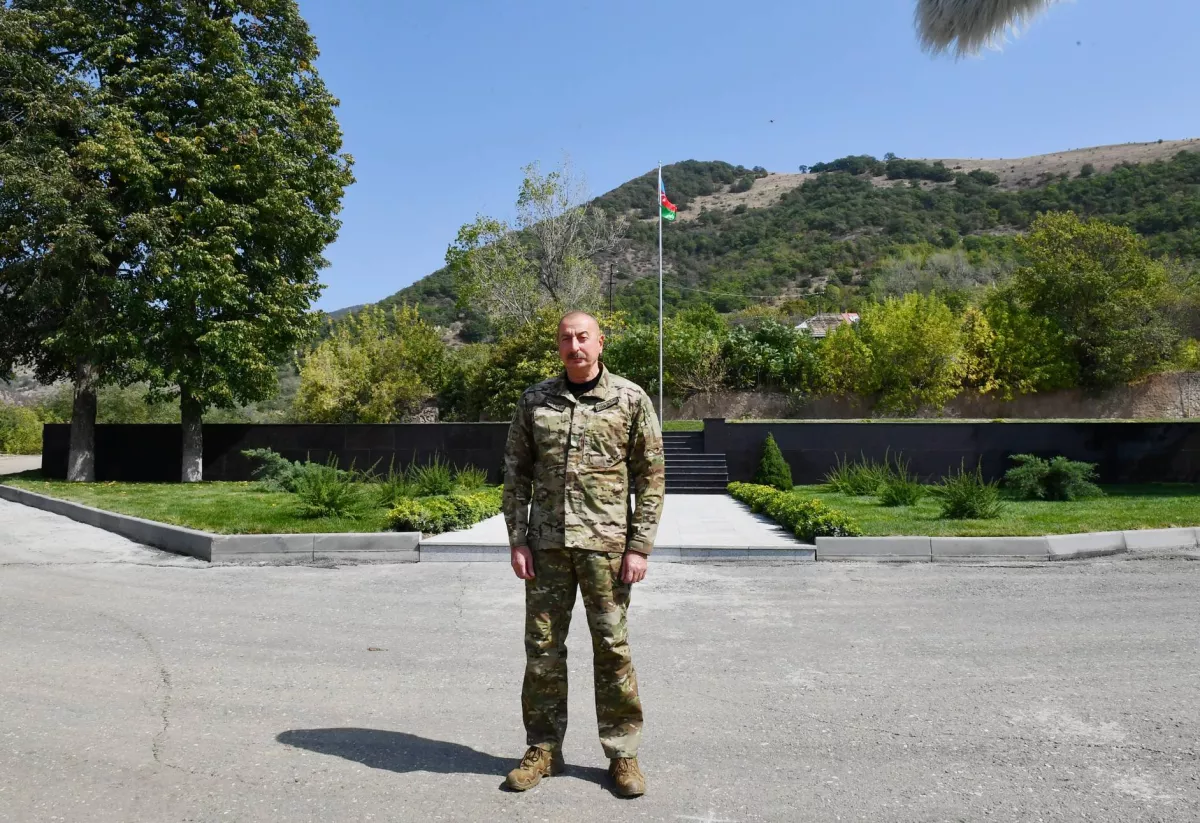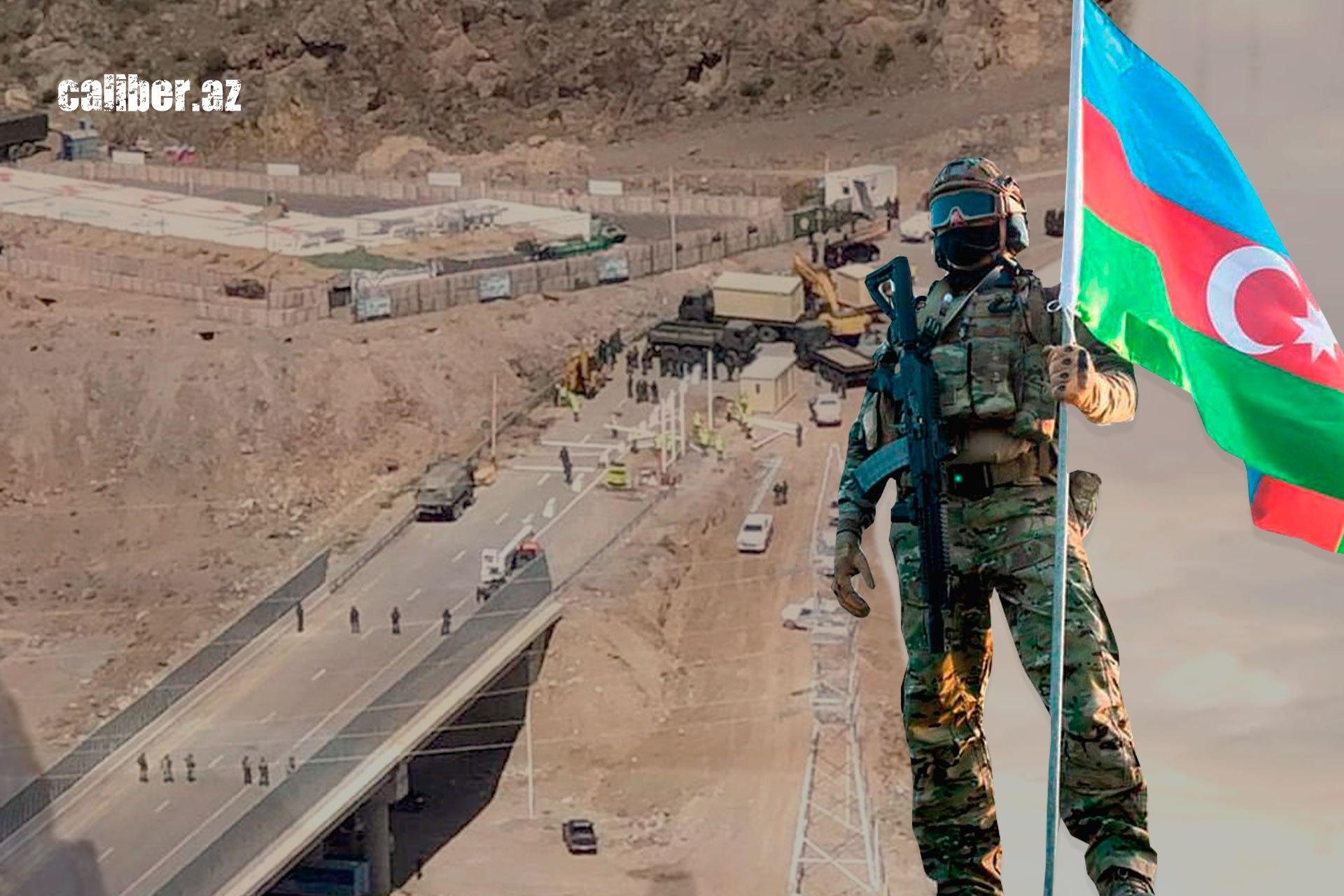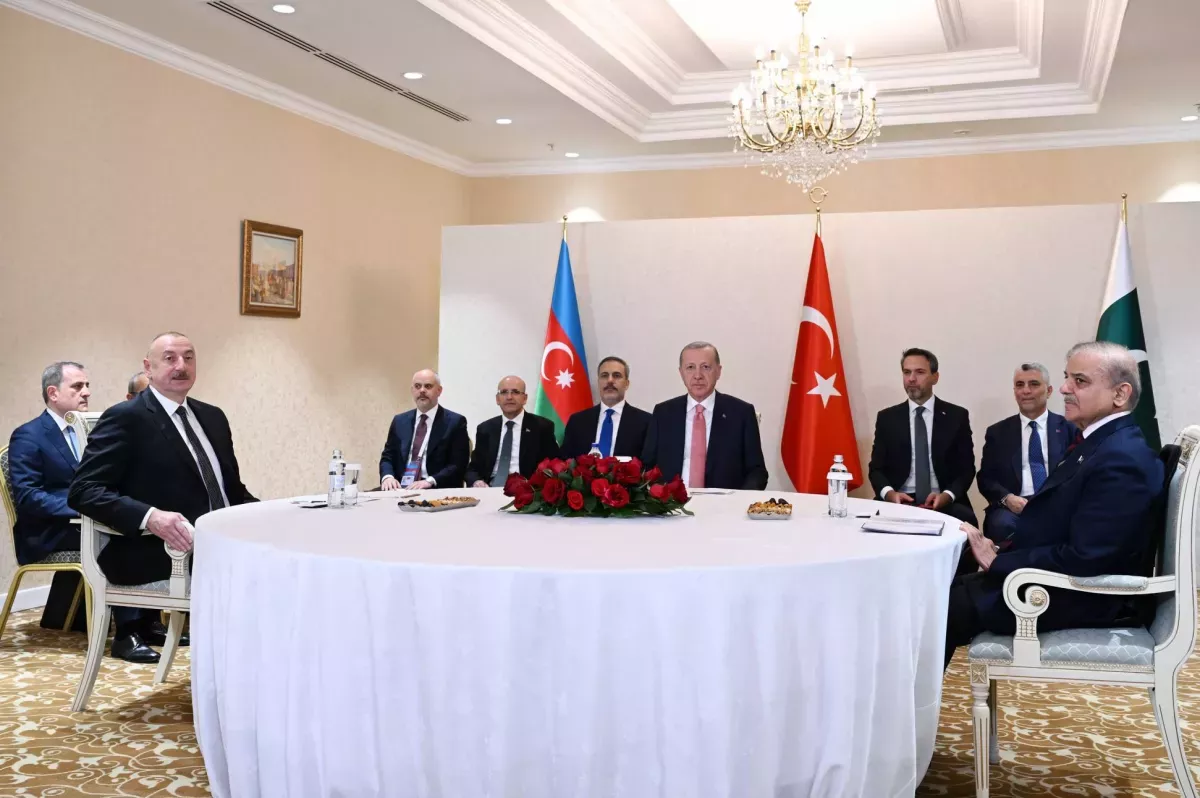Symbol of return and triumph of justice The embodiment of a dream in reviving Lachin
A symbol… Each of us likely has a sense of what this word means, especially in this context. Yet no matter how we interpret the term, its facade often hides the human element—emotions, joys, or the powerful surge of feelings experienced by individuals. That is exactly what comes to mind this morning, on the eve of the upcoming inauguration ceremony of the Lachin International Airport. Especially so in light of the memories of the Armenian armed forces’ occupation of the Lachin district—also in May, but back in 1992.
And yet, May itself carries deep symbolic meaning—even from nearly three decades ago. In 1996, National Leader Heydar Aliyev, during a meeting with a group of residents from the Shusha and Lachin districts, assured them that the cities of Shusha and Lachin would inevitably be liberated from occupation: “We are confident that these lands of ours will be freed. The people of Shusha and Lachin will return to their homes, to their native land. There is no doubt about it.”
Some may read these words and reflect on their prophetic power. But perhaps it was less about foresight and more about Heydar Aliyev’s profound understanding of the inner strength, determination, and patriotism of the Azerbaijani people—and his unmatched belief in them.
On 26 August 2022, the national leader’s conviction was vindicated. As a continuation of the Victory in the Patriotic War, the valiant Azerbaijani Army restored control over Lachin, as well as the villages of Zabukh and Sus. A month later, President Ilham Aliyev raised the national flag of Azerbaijan in Lachin.

However, Armenia continued to exploit the road infamously referred to as the “Lachin corridor” for criminal purposes. For more than two years, Azerbaijan consistently brought to the attention of the international community the fact that the Armenian side was using the Lachin road to transport landmines, ammunition, and military personnel. At the same time, Baku informed the world about the illegal exploitation of mineral resources on Azerbaijani territory by Armenian criminal elements in areas temporarily monitored by Russian peacekeepers.
Yet, due to the lack of international response to these blatant violations of Azerbaijan’s sovereignty, Azerbaijani environmental activists began holding protest actions on the Khankendi-Lachin road at the end of 2022. Then, in April 2023, despite all the insinuations from the Armenian side, a border checkpoint was established at the start of the Lachin-Khankendi road—on the border with Armenia. As a result, the unlawful entry of various foreign politicians, particularly from France and some other countries, into Azerbaijani territory via Armenia came to an end.
Subsequently, following Baku’s local anti-terrorism operations in September 2023, several more villages in the Lachin district were returned to Azerbaijan’s control.

As in all territories liberated from occupation, the Lachin district has witnessed a surge of large-scale construction and reconstruction efforts. Life has returned in full force. Following the commissioning of the Gulebird Hydroelectric Power Plant, infrastructure projects have multiplied across the region—paralleling the return of residents and the construction of new facilities. On May 27, President Ilham Aliyev met with residents resettled in the village of Beylik in Lachin district and personally handed them the keys to their new homes.
If we view today's inauguration of Lachin International Airport through the lens of international presence—attended not only by President Ilham Aliyev, but also by President of Türkiye Recep Tayyip Erdoğan and Prime Minister of Pakistan Muhammad Shehbaz Sharif—the symbolism takes on a broader, global dimension.
To grasp this meaning, one might look back to 29 September 2020, just two days after the start of Azerbaijan’s Patriotic War. At that crucial moment in the country’s history, President Ilham Aliyev highlighted that “standing by our side were countries that openly expressed their position—our brothers in Türkiye and Pakistan.” The head of state expressed gratitude to “our Turkish brothers and our brothers in Pakistan,” who “demonstrated a resolute stance in this vital moment,” adding: “We will never forget this. Our friendship and brotherhood will continue.”
In this light, is the joint participation of the leaders of all three countries in the opening ceremony of Lachin Airport not a powerful symbol of enduring brotherhood?

And here lies yet another symbol—resounding and powerful. In 2007, Arkadi Ghukasyan, then self-proclaimed “head” of the puppet separatist regime in Karabakh, loudly urged his criminal entourage not to believe in what he mockingly called “fairy tales that Lachin will be handed over to Azerbaijan. That will never happen,” he claimed.
One wonders what Ghukasyan must be thinking now—nearly twenty years after his declaration to "not believe in fairy tales." Perhaps he now contemplates a very different reality. We recall Ghukasyan today because his name has once again surfaced—this time in the context of an ongoing criminal trial in Baku, where Armenian citizens are being prosecuted for war crimes and other serious offences. And none other than Ghukasyan himself, as a defendant, has admitted that illegal settlement took place in Lachin and Kalbajar during the years of occupation.
It is hard to deny that today’s opening of Azerbaijan’s third international airport on a liberated territory is charged with profound symbolism—from every angle. And it is taking place on a momentous date: 28 May, Azerbaijan’s Independence Day.
A brilliant event! A moment of outstanding symbolism! And a testament to the tremendous prospects that lie ahead for Azerbaijan on the global stage. All the more so, as the nation’s unique Iron Fist remains steadfast—always in place, always ready.








